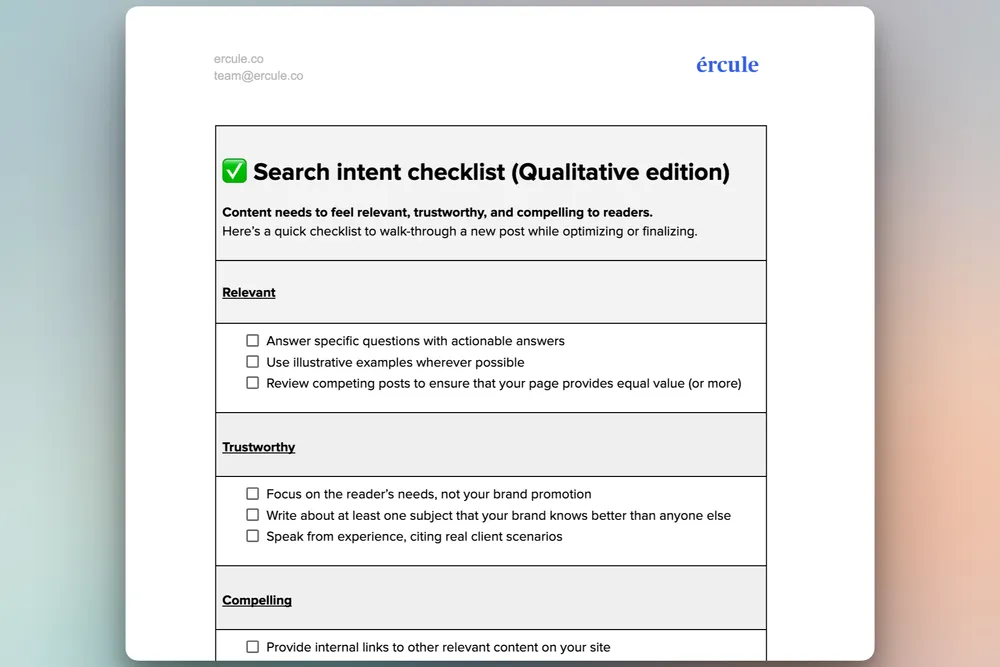Search intent is bigger than keywords and funnel stages. It’s bigger than curated FAQs and hot takes. It’s even bigger than your wonderful, original research reports.
Those are all important, of course. But there are more subtle elements at play, too: tone, word choice, voice. The stuff that builds trust.
You can’t measure those qualities like you can measure keyword volume, but you can still be systematic about including them.
So we built a checklist for those elements that build trust.

A qualitative audit for search intent
Sales reps get to build rapport with leads in a direct way – often in-person. The task for content marketers is much more abstract and difficult.
Still, we can try to build rapport with the content we create.
From the title to the closing paragraph a piece of content needs to be:
- Relevant to a reader’s interests, pain points, and expertise
- Trustworthy and empathic with the information it presents
- Compelling for people to read on and learn more
Experienced editors have an intuition for these qualities. For the rest of us, it helps to have a checklist of explicit tasks. Like this...

💝 Get the search intent checklist
When we optimize content at ércule, the approach is very traditional: target a keyword and align with a funnel stage. We use a checklist to optimize for all of the standard SEO priorities. (Feel free to copy that one, too.)
And now we have a checklist for the qualitative side of search intent.
The tasks on the list are subjective but, I think, important. For example…
- Answer specific questions with actionable answers
- Speak from experience, citing real client scenarios
- Write about at least one subject that your brand knows better than anyone else
Make a copy for yourself and customize with your own brand voice guidelines.
And edit swiftly with your reader’s best interest in mind!
